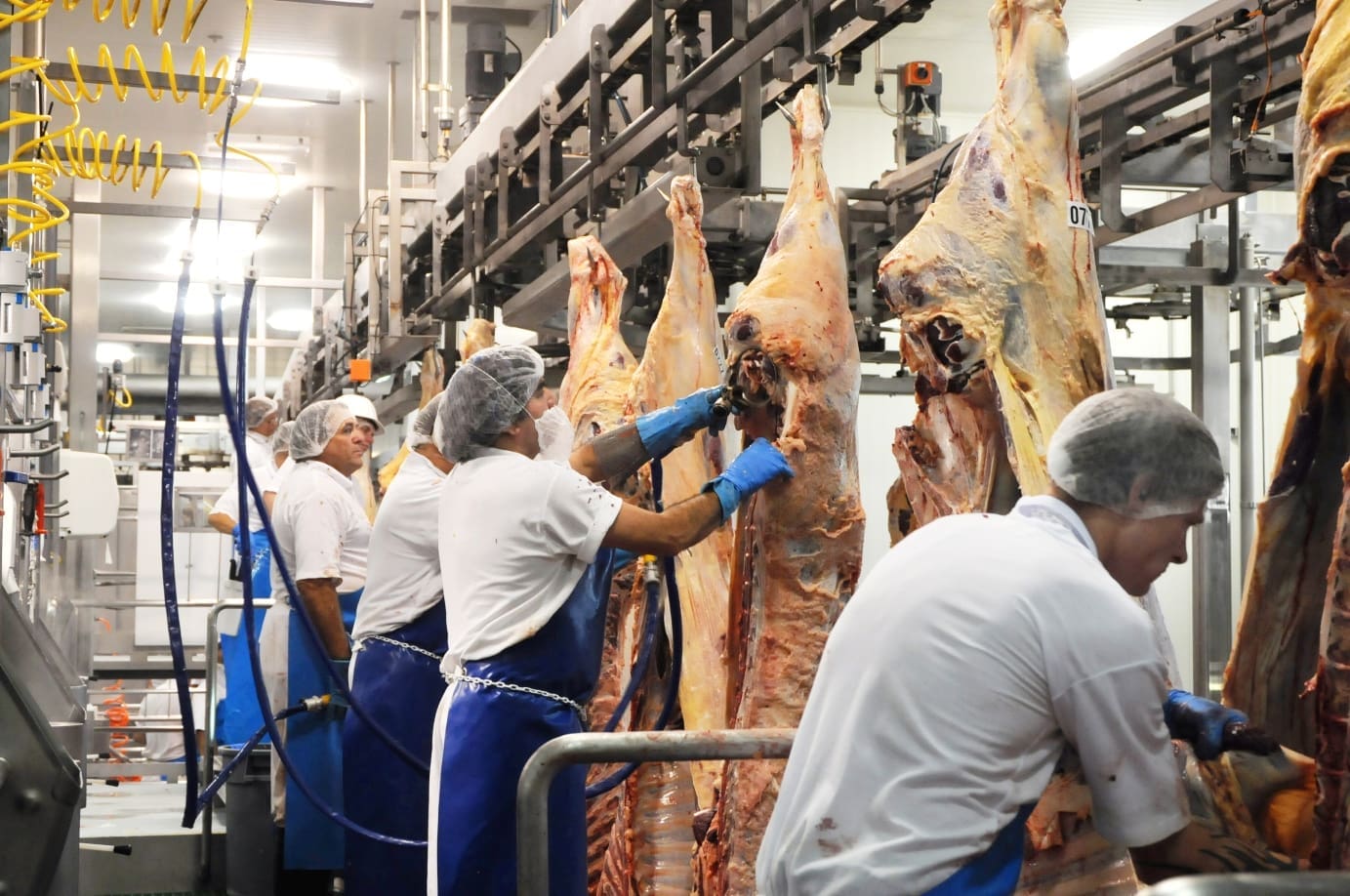AUSTRALIAN meat processors are working to minimise the risk of entire abattoirs being forced to close in the event of one or more employees testing positive to COVID-19.
 Protecting human health and minimising risks to workers remains the industry’s primary focus as rates of coronavirus infections around Australia rise, meat industry groups have told Beef Central.
Protecting human health and minimising risks to workers remains the industry’s primary focus as rates of coronavirus infections around Australia rise, meat industry groups have told Beef Central.
At the same time potential impacts to livestock markets in the event of one or more abattoirs being forced to close if employees test positive to COVID-19 are also raising industry concerns.
Australian Meat Industry Council CEO Patrick Hutchinson told Beef Central the industry is closely following advice from the Federal Government and the Chief Medical Officer.
Any abattoir staff member who did test positive would require immediate isolation, as would any fellow employees with whom they had come into contact, and they would also require testing as quickly as possible.
For this reason Mr Hutchinson stressed it was critically important that Governments ensure adequate supplies of testing kits are available in rural and regional areas.
“The Government has got to be very mindful about ensuring rural and regional Australia, as anywhere else, has as many test kits as possible to ensure that facilities like processing plants providing meat throughout Australia are able to test effectively and quickly if required,” he said.
“The other thing that serves us well is that obviously as an industry we are world leaders in micro-biological management and sanitisation, and at the end of every shift there is obviously a complete washdown.
“We’re well in front to be able to meet any concerns that are being raised.”
Mr Hutchinson said AMIC has been in touch with State and Federal Government this week, and it was clear fro those discussions that red meat is viewed and recognised as an essential service. He said it was also well understood that if coronavirus was to appear in any part of the supply chain, the need to minimise any disruptions or closures was well understood.
US cattle groups share concerns
Cattle industry groups have expressed similar concerns in the United States, with the US Cattlemen’s Association this week urging the US Department of Agriculture (USDA) to develop a plan to keep packing plants up and running as a top priority.
“The first thing we need to do is calm the markets down and put some kind of certainty in that the plants will run…in case an employee or employees get coronavirus, the last thing the industry needs at this present time is another plant to be closed,” USCA board member and Nebraska cattle feeder Lee Reichmuth told US media this week.
“So we’ve reached out to USDA to look at that and kind of come up with a game plan if that were to happen and how they would navigate through that.”
In a statement overnight the USDA sought to reassure the US industry it will keep packing plants staffed with federal inspectors and its agencies will use “their authority and all administrative means and flexibilities to address staffing considerations”.
Business exluded from large gathering restrictions
Some of Australia’s largest meatworks employ more than 500 people in single shifts.
However current restrictions on non-essential gatherings of greater than 500, introduced by the Federal Government on Monday, do not include workplaces.
As meat runs off supermarket shelves amid panic buying and stockpiling by consumers, the Australian Meat Industry Council is also working to reassure consumers that there is no need to panic about the supply of meat.
“What is absolutely beneficial for us as industry is because we are such as tight knit group, processor through to wholesaler through to retailer, be they major retailer or our independent retail butchers, we’re able to be manage the requirements of product very effectively,” Mr Hutchinson said.
“There is no need to be panicking, we have those systems under control and can move product very effectively to meet spikes in demand.
“That is why we exist, to provide meat.”
Mr Hutchinson said AMIC has been tackling a vast array of different business issues with regards to management within COVID-19 and product supply.
“We’re effectively taking a piece by piece approach so we can effectively answer questions, provide information to Governments and ensure that product is moving through the system effectively well.”
Panic meat sales speak volumes
In strong contrast to the media hype promoting plant-based alternatives, the panic buying of mince and other meat products in recent weeks has provided the clearest indication possible of how strong consumer support for meat remains, Mr Hutchinson said.
“Nothing is going to tell you that more than seeing kilometre-long lines of people waiting in butcher shops and going up to people delivering meat trying to buy it off the back of a truck, and the scenario of Coles and Woolies rationing beef mince,” he said.
“That is showing you, and it should be a big thing for all of the concerned cockies out there who are worried about alternative proteins, that shows you a community in action.
“If that is not a barometer of what people think of our product then I don’t know what is.”
Red meat councils meat to discuss COVID-19 impact
Meanwhile red meat industry peak councils and RDC held a virtual roundtable meeting yesterday to discuss ongoing COVID-19 implications to the industry.
A summary emailed by the Red Meat Advisory Council today said the industry is prioritising efforts to minimise risks to staff and customers, and to assist business continuity.
Yesterday’s roundtable called for availability of testing to increase significantly to expedite treatment and containment and eliminate unnecessary isolation and allow employees to return to the workforce.
It also called on the Council of Australian Governments to take immediate measures to protect red meat industry businesses, including waiving fees and charges, deferring non-essential regulatory reviews, and implementing an immediate payroll tax holiday as part of a broader stimulus.
The Red Meat 2030 partners said they will now hold an industry roundtable on a weekly or as needed basis as more information on the COVID-19 public health response becomes available.


HAVE YOUR SAY